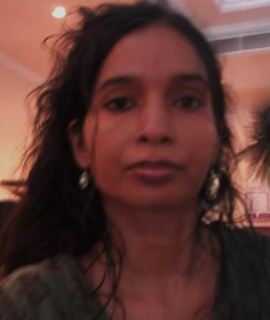Title : Autophagy as an immunomodulatory signalosome in toll-like receptors/Wnt-Frizzled mediated inflammatory “gastrohepatic disease-web” in hepatocellular/colorectal/cholangio-carcinomas: Translational research and public health impact in American cohorts of Texas, Nebraska and New York states in USA
Abstract:
Objective: Dissecting the cellular/molecular/genetic regulatory biochemical signaling networks: Autophagy/Toll-like Receptors/Wnt-Frizzled in inflammatory “gastrohepatic disease-web” primarily hepatocellular/colorectal/cholangiocarcinomas is essential for diminishing the disproportionate share of morbidities and mortalities in susceptible “at-risk” American cohorts of Texas, Nebraska and New York states in USA. I aimed to investigate the potential immunomodulatory role of complex Autophagy, Toll-like Receptors and Wnt-Frizzled signaling networks/cross-talks in pathobiology and prevention of gastrohepatic cancers viz. hepatocellular/colorectal/cholangiocarcinomas for eventual design of promising patient-friendly cost-effective predictive and prognostic biomarkers and/or pharmacological scaffolds for future immunotherapeutically potent drugs with minimal adverse effects.
Material and Methods: Cell-viability/MTT-proliferation assays were performed under basal and Glucose-deprived metabolic/physiological conditions in TLR-4 agonist Lipopolysaccharide (LPS/endotoxin)-treated cells in culture: HepG2, HT-29, SW480, Caco-2 gastro-hepatic-colorectal carcinoma cells. Autophagy-flux monitoring by assessing relative ratios of LC3-II vs LC3-I in 0-12-24-48 hours’ time-course in GD-triggered cells in absence and/or presence of TLR-4 agonist. Cytotoxicity assays, semi-quantitative Reverse Transcriptase-Polymerase Chain Reaction (RT-PCR), immunofluorescence and DAPI/Hoechst-staining were performed followed by protein isolation by RIPA-method, protein estimation by Bradford’s method, Western blotting (primary antibodies from Cell Signaling Tech. USA). Immunoblots were subjected to densitometric scans and relative protein expressions/fold-changes determined; Glyceraldehyde-3-Phosphate-Dehydrogenase (GAPDH) and/or beta-actin were used as internal controls/housekeeping proteins.
Results: HepG2, HT-29, SW480, Caco-2 gastro-hepatic-colorectal carcinoma cells were ≥80% viable under basal and Glucose-deprived metabolic/physiological conditions in TLR-4 agonist LPS/endotoxin-stimulated sterile culture in vitro conditions; autophagy-flux was significant in GD-triggered/starvation and/or hypoxic conditions with relatively higher expression levels of LC3-II (16 kDa) vs LC3-I (14 kDa) in 0-12-24-48 hours’ time-course. Wnt 1/2/4/5/11 and Fzd 1/2/5 yielded relatively low mRNA expression levels in HepG2/Caco-2 cell-lines. Further, TLR4 agonist LPS-modulated autophagic flux was significant in SW480 adenocarcinoma cells in 48 hours with differential LC3-II vs LC3-I expression levels; interestingly, the protein expression patterns of LC3-II isoform were significantly higher than LC3-1 over 0-12-24-48 hours in HepG2, HT-29, SW480 and Caco-2 cells.
Conclusions: My promising translational research study highlights the emerging immunotherapeutic potential of Autophagy/Toll-like Receptors/Wnt-Frizzled cross-talks/signaling-networks in hepatocellular/colorectal/cholangio-carcinomas for future pharmacogenetics/genomics/metabolomics-based public health-oriented studies in ethnically disparate population-subsets of States of Texas, Nebraska, New York, USA as well as Asia-Pacific region (North+South India). Autophagy markers LC3-II and LC3-I appear promising targets for future development of patient-friendly cost-effective predictive and prognostic biomarkers and/or pharmacological scaffolds for immunotherapeutically potent drugs with minimal adverse effects in susceptible cohorts worldwide.
Acknowledgements: Dr.Pandey acknowledges NIH, USA for previous funded-postdoctoral/doctoral biomedical/translational research experiences at Schools of Medicine, UTMB, Galveston, Texas/Creighton University, Omaha, Nebraska/New York Presbyterian-Weill Cornell Medical College, New York, USA.



